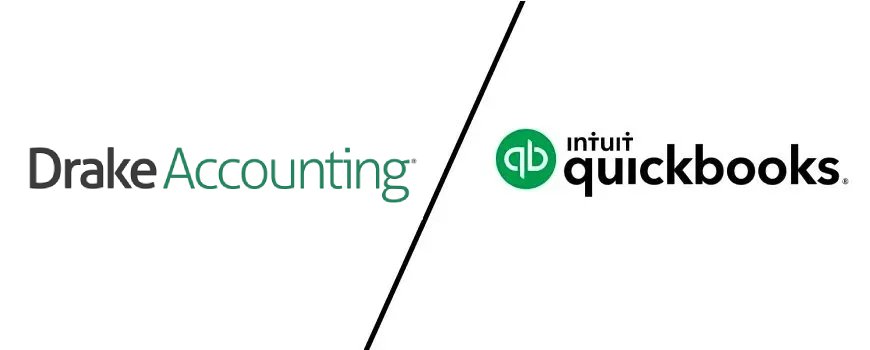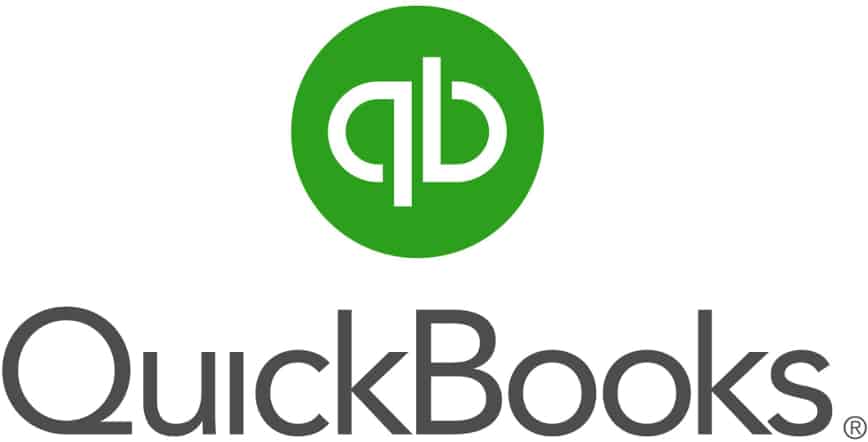
Choosing an appropriate software for accounting is a critical decision that can have a big impact on a company’s financial management. Drake Accounting and QuickBooks are two major rivals in this space. The following article compares both of these accounting software (Drake Accounting Vs QuickBooks) packages in depth, highlighting their functions, capabilities, and prospective advantages for various company settings.
Introduction: Drake Accounting Vs QuickBooks
Drake Accounting
Drake Accounting stands out with its accounting software designed exclusively for tax professionals and accountants. Drake Accounting has a wide range of functions that make it excellent for tackling complex tax circumstances and large financial responsibilities. The software has received praise for its broad tax planning functionality and features that address the distinctive requirements of taxation and financial experts.
You May Also Compare
Choose what is right for you! Compare Stripe with QuickBooks to keep your business running!
View All FeaturesQuickBooks
QuickBooks is a widely used financial management system designed by Intuit that serves a diverse range of companies, including freelancers and startups to huge enterprises. Its popularity can be ascribed to its user-friendly design, extensive functionality, and adaptability to organisations of all sizes. QuickBooks has become renowned for its straightforward design and simplicity of use, making it an enticing option for consumers with varying levels of financial awareness.
Features: Drake Accounting Vs QuickBooks

| Drake Accounting | QuickBooks |
| Tax Preparation Expertise | Efficient Invoicing and Billing |
| Interaction with Customers | Expense Tracking |
| Strong Reporting | Comprehensive Payroll Management |
| Capability to Support Multiple Users | Integration Capabilities |
| Bank Consolidation | Scalability |
Comparison: Drake Accounting versus QuickBooks | ||
| Target Audience: Drake Accounting is largely aimed at qualified accountants and tax preparers who work with complex tax circumstances, whereas QuickBooks is aimed at a wide variety of companies, from startups and freelancers to large corporations. | Specialisation: Drake Accounting excels in the preparation of taxes and compliance, with extensive features designed specifically for professionals in taxation. QuickBooks provides a wide range of accounting functions that are compatible with a variety of companies’ motives. | Usability: Accounting might require a greater learning curve because of its extensive capabilities, making it more appropriate for accounting specialists, but QuickBooks is noted for its easy-to-use user interface, rendering it approachable to prospective individuals with less knowledge of accounting. |
| Customization: Drake Accounting offers extensive alternatives to customization for submitting reports, particularly for exact analysis of finances. QuickBooks allows for modification via independent connectors, expanding adaptability. | Collaboration: Drake Accounting provides safe client cooperation via portals, boosting interaction between accountants and customers. Although QuickBooks has collaboration tools, it may not be as sophisticated as Drake Accounting. | |
Pros and Cons: Drake Accounting Vs QuickBooks
Drake Accounting Pros & Cons

Pros | Cons |
| Tax Preparation Excellence: One of Drake Accounting’s distinguishing characteristics is its excellent concentration in order on the preparation of taxes. The software includes an extensive set of tools, computations, and forms that are specifically designed for dealing with complex tax scenarios, assuring precise and efficient payment of taxes and monitoring. | Steep Learning Curve: Drake Accounting might require an extended process of learning due to its broad functionality and specialty in tax-related duties, particularly for those who are relatively novice to accounting programs or lack previous experience with the preparation of taxes. |
| Professional Use: Drake Accounting is intended to be applied by experts in accounting, CPAs, and tax preparers. Its specialist features cater to these individuals’ particular demands, making it a solid alternative for professionals who deal with significant computations of taxes and requirements for compliance. | Complexity for Small Businesses: The many aspects and focus on handling taxes may feel intimidating or unneeded for smaller businesses that have only basic accounting necessities. The software could incorporate more functions than such organisations require, which might trigger confusion. |
| Advanced Reporting: The software provides a variety of reporting choices, including the ability to produce personalised reports on finances, financial statements, statements of profit and loss, and more. This tool enables detailed financial evaluation and allows users to make accurate choices depending on their facts. | Limited Non-Tax Features: While Drake Accounting performs in tax-related chores, it might not have some of the other broader accounting functions that company executives needed for on a daily basis financial oversight. This lack of flexibility may be an obstacle for individuals who require an enhanced accounting solution. |
| Client Collaboration: Drake Accounting places its importance on working together among accountants and the customers they serve. Secure client portals improve clarity and client interactions by facilitating sharing of papers, interpersonal interaction, and engagement. | |
| Multi-User Support: The software enables several people to perform tasks on a single file simultaneously. This function encourages cooperation as well as efficient interaction among accounting groups, which is especially advantageous for businesses with distant or remote workforces. | |
| Bank Reconciliation: Drake Accounting automates the bank reconciliation procedure, allowing customers to correctly match the transactions they make with financial information. This guarantees that the accounting files are current and correct. |
QuickBooks Pros & Cons

Pros | Cons |
| Versatility Across Business Sizes: QuickBooks has become renowned for its flexibility, serving a wide range of organisations comprising freelancers and startups to long-standing enterprises. Its various variants and editions guarantee that enterprises of all sizes are able to locate an answer that’s appropriate for them. | Advanced Features Limitations: While QuickBooks delivers an extensive list of accounting-related features, it might not have the level of complexity necessary by accounting professionals or tax professionals who handle complex taxation circumstances or particular financial operations. |
| User-Friendly Interface: QuickBooks has a simple and intuitive layout, which makes it understandable even to individuals that do not possess substantial background in accounting. This tool is very useful for small enterprise owners who could be missing trained accounting employees. | Additional Costs for Integrations: While integrating into a network is a positive, certain mergers may incur further costs. This could end up resulting in unforeseen expenses in firms that call for particular ties for their business to function. |
| Efficient Invoicing and Billing: With personalised templates, scheduled reminders, and the capability to take online payments, the program streamlines the billing and invoicing procedure. It also allows keeping up an even cash flow and saves costs associated with administration. | Scalability Constraints for Large Enterprises: While QuickBooks is acceptable for many medium-sized and small organisations, it might not have the sophisticated features and scalability required by bigger companies with complicated financial and reporting requirements. |
| Expense Tracking and Budgeting: QuickBooks makes detailed cost monitoring feasible by connecting accounts with banks and classifying transactions. This tool assists with financial planning, evaluation of finances, and spending management. | Interface Limitations for Professionals: While QuickBooks’ layout is simple to use, it could be missing the specialised tools and capabilities that qualified accountants or tax practitioners needed for difficult financial tasks. |
| Comprehensive Payroll Management: QuickBooks provides extensive payroll functionality for organisations with staff members, including income computations, deductions for taxes, rewards management, and additionally submitting taxes. This guarantees that payroll is processed correctly and on schedule. | |
| Scalability: QuickBooks allows scalability as organisations grow, with several versions tailored to differing company dimensions and demands. Users can upgrade from the self-employed edition to the more complex variants as their business objectives evolve. |
Price: Drake Accounting Vs QuickBooks
Drake Accounting
- Drake Accounting levies a fee every month for its services. The actual expense is influenced by factors such as the overall number of consumers, the components required, and the size of the organisation. The program’s pricing is largely aimed at licensed accountants and tax preparers, which makes it a suitable option for businesses with specific financial and tax demands. The Forms Edition is priced at $395. The Professional Edition costs $795 USD.
QuickBooks
- QuickBooks has a staggered pricing approach to accommodate businesses of all sizes and needs. QuickBooks Self-Employed, the online version of QuickBooks, and the desktop version of QuickBooks are all available. Each version has its own pricing tiers, including the online version necessitating an ongoing membership and the version for desktops requiring an initial payment. QuickBooks Online Basic Start: Fundamental features for small-scale businesses. Monthly rates begin at $30.
- QuickBooks Online Essentials adds extra tools like bill administration as well as time monitoring. Monthly rates begin at $55.
- QuickBooks Online Plus: Incredible features for expanding enterprises. Monthly rates begin at $85 USD.
Integration: Drake Accounting Vs QuickBooks
Drake Accounting
While Drake Accounting offers some integration capabilities, they might be more limited compared to QuickBooks. The software tends to focus more on providing an all-inclusive solution tailored to accounting and tax professionals.
QuickBooks
QuickBooks is available in both desktop and internet editions. QuickBooks Desktop offers typical installed software access, but QuickBooks Online provides accessibility via the cloud from any gadget with a connection to the internet. QuickBooks also offers smartphones and tablets for both Apple and Android devices. This allows customers to gain access and administer their accounts while on the move, increasing their convenience and adaptability.
Desktop and Mobile Platforms: Drake Accounting Vs QuickBooks
Drake Accounting
Drake Accounting is largely a desktop application. This can increase the protection of critical monetary information, but it could restrict possibilities for remote employment or on the move chores. While Drake Accounting may not have a specific smartphone application, some internet-based solutions may allow customers to make use of the application remotely.
QuickBooks
QuickBooks is available in both desktop and internet editions. QuickBooks Desktop offers typical installed software access, but QuickBooks Online provides accessibility via the cloud from any gadget with a connection to the internet. QuickBooks also offers smartphones and tablets for both Apple and Android devices. This allows customers to gain access and administer their accounts while on the move, increasing their convenience and adaptability.
Customer Support: Drake Accounting Vs QuickBooks
Drake Accounting
Drake Accounting provides customer service via email, telephone, as well as live chat. The assistance staff receives regular updates about tax-related questions and complex accounting regulations. The customer service for the software is geared primarily on addressing difficult tax scenarios and accounting-related problems addressed by experts in the industry.
QuickBooks
QuickBooks enables clients a variety of ways to interact with channels, including phone, chat on the internet, electronic mail, and an enormous repository of knowledge. The assistance provided is extensive and answers a wide range of user inquiries. QuickBooks support is intended for users of different degrees of expertise, ranging from beginners to accounting experts.
Payment Type: Drake Accounting Vs QuickBooks
Drake Accounting
Drake Accounting has a subscription service pricing system. The expense fluctuates based on elements including the number of users, the modules needed, and the scope of the company. Users are able to use the functions of the program and upgrades for the entire length of their subscription under the subscription arrangement.
QuickBooks
QuickBooks offers subscription prices for the internet-based versions as well as a one-time purchase costs for its desktop variants. QuickBooks is flexible to varied budgetary constraints since users can decide on the method of payment option that most closely matches their financial constraints and requirements.
User Ratings: Drake Accounting Vs QuickBooks
Drake Accounting
Among tax and accounting experts, consumer reviews for Drake Accounting tend to be favourable. Users in this category appreciate the software’s particular characteristics and concentration in order to prepare taxes.
QuickBooks
QuickBooks has attracted generally superb ratings from consumers across business sectors, notably small companies, startup companies, freelancers, and others. Its simple interface and varied features lead to its widespread use.
Conclusion
Several factors enter into account while determining between Drake Accounting and QuickBooks. Drake Accounting could represent a suitable option for firms looking for professional tax-focused accounting and expert help. QuickBooks, contrary to popular belief, provides an adaptable program that caters to a wide range of companies and industries, as well as a complete assistance platform.
Finally, the decision will depend on your company’s specific needs, expertise in accounting, and preferred capabilities. While Drake Accounting caters mainly to tax specialists, QuickBooks has an intuitive design and multi-industry applicability. Evaluating your company’s budgetary constraints as well as its development direction will guide you in selecting the application that most effectively meets your demands.

